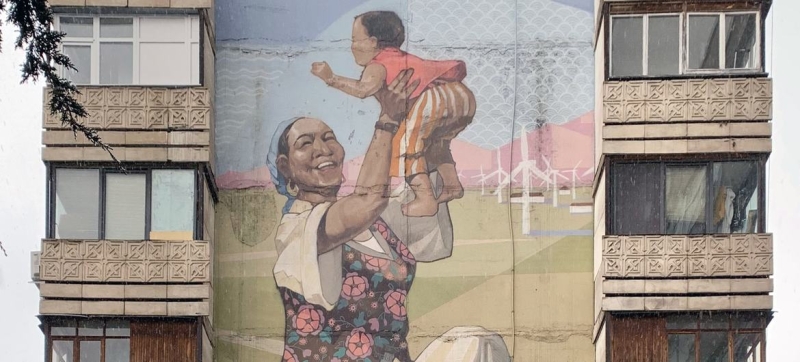
Street mural in Almaty dedicated to Kazakh women. Nearly 60,000 children in Central Asia grow up in boarding schools Human Rights
Nearly 60,000 children under the age of 17 currently live in boarding schools in five Central Asian countries, according to a new policy brief published today by UNICEF.
“It is well known that institutionalization has serious negative impacts on children, the consequences of which can last a lifetime, which makes it necessary to increase investment in family support services,” said Regina De Dominicis, UNICEF Regional Director for Europe and Central Asia.
According to her, in recent years fewer children in Central Asia were entering alternative care, including closed institutions.
“We must continue our work to ensure that no child is ever placed in alternative care because of poverty, disability, poor behavior, or because the family does not have access to the services they need to care for their child at home,” said Regina De Dominicis.
According to a recent study, there are approximately 203 children for every 100,000 children living in residential institutions across Central Asia, almost double the global average of 105 per 100,000 children.
Despite progress made in reducing the overall number of children in institutions across Central Asia, children with disabilities are disproportionately represented in residential institutions. In all countries in the region except Kazakhstan, the proportion of children with disabilities in residential institutions increased between 2015 and 2021, highlighting the lack of community-based services for children with disabilities.
Children in institutions are deprived of the social, emotional and intellectual support that is critical for healthy development. Isolated from society, children in residential institutions are also vulnerable to violence, neglect and abuse.
UNICEF works with governments and partners across Central Asia to help keep families together and support family- and community-based care. This includes developing and implementing deinstitutionalization policies and programmes, scaling up family protection and support services, and promoting family- and community-based care.
